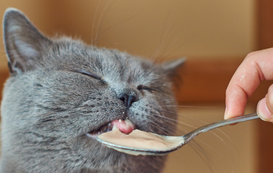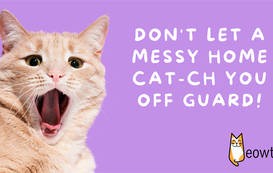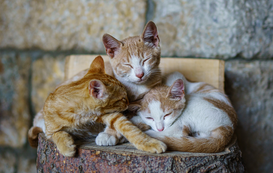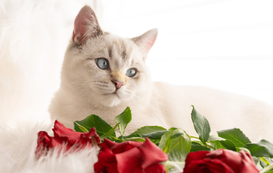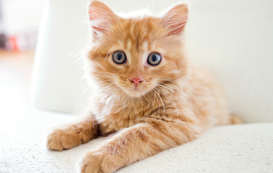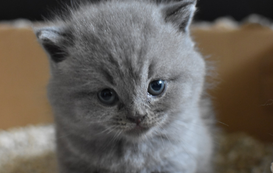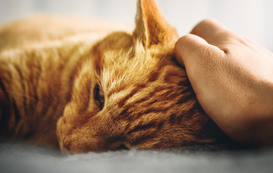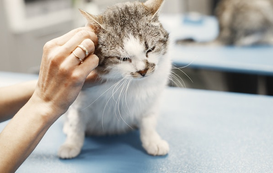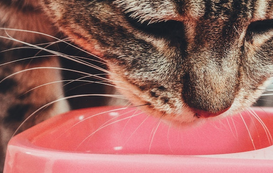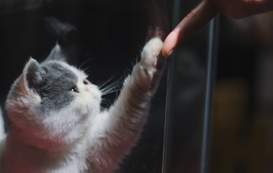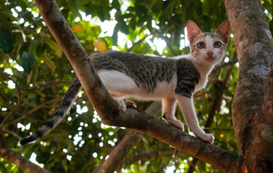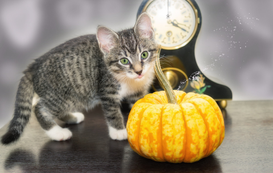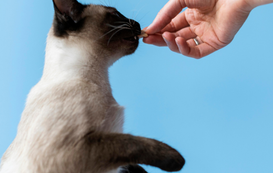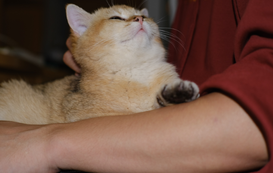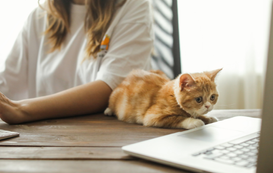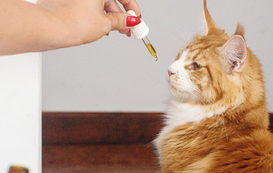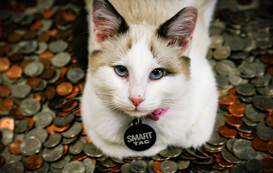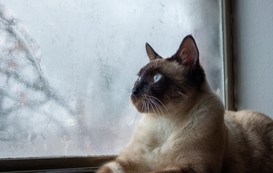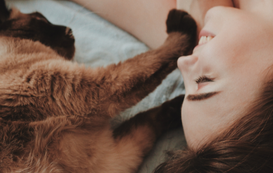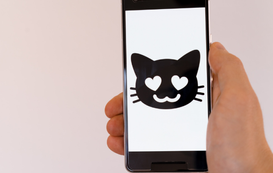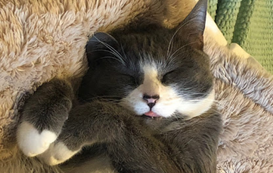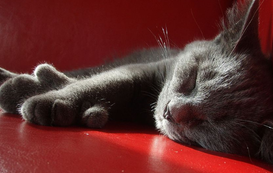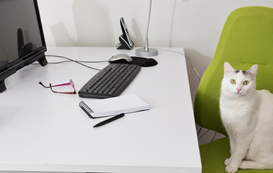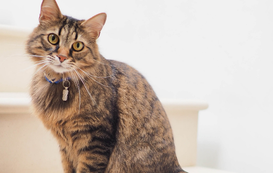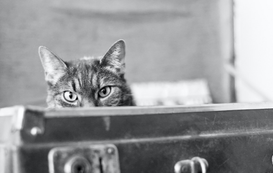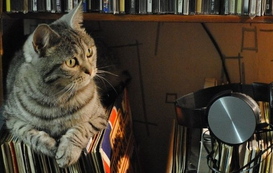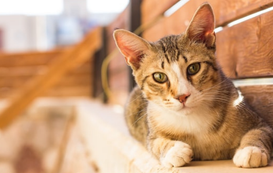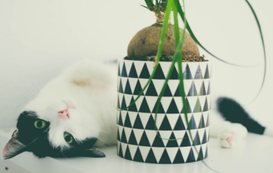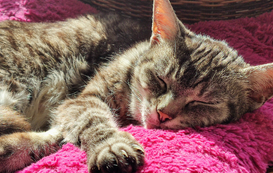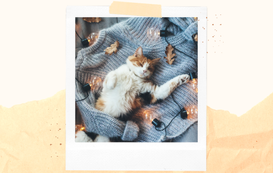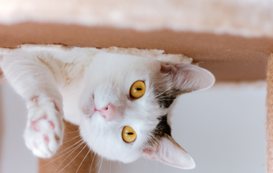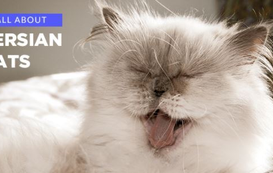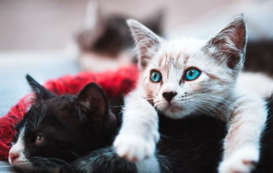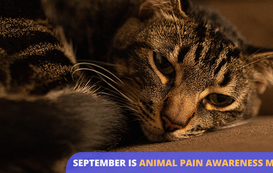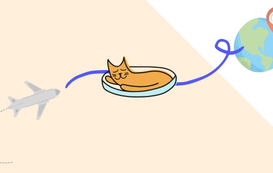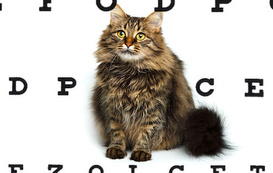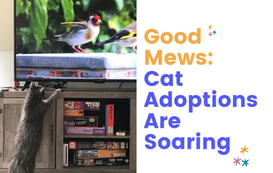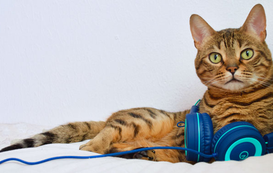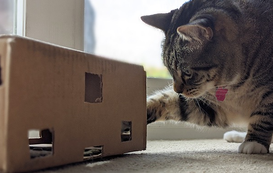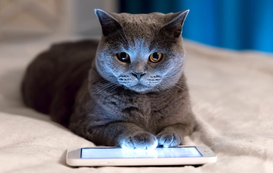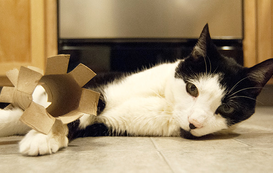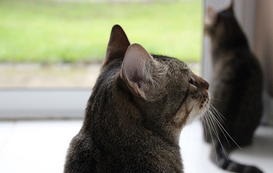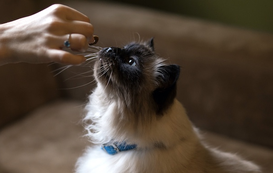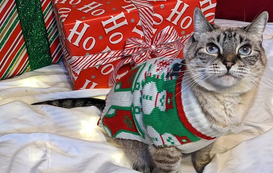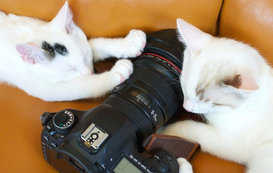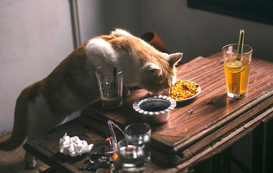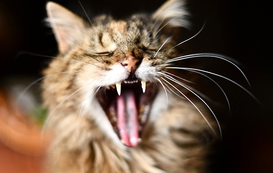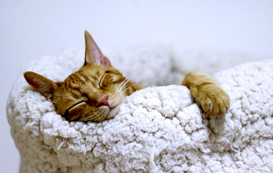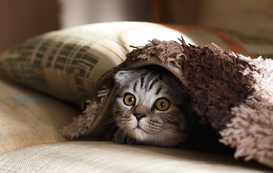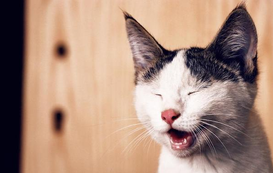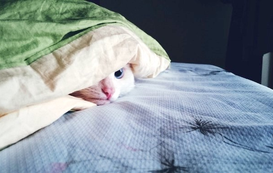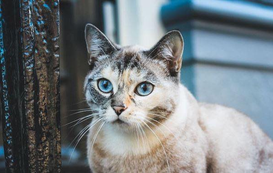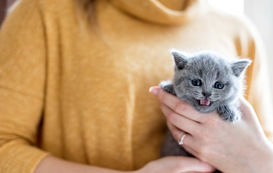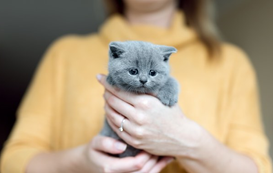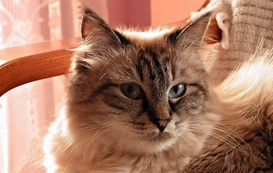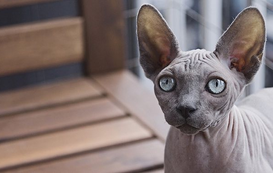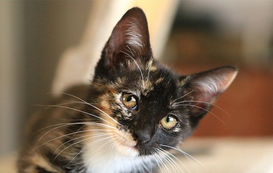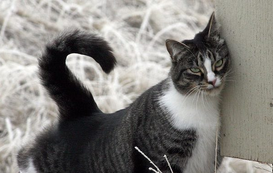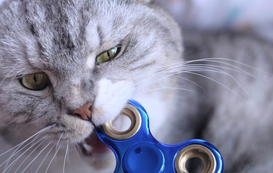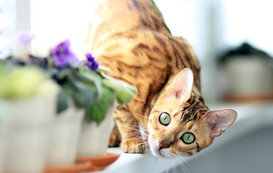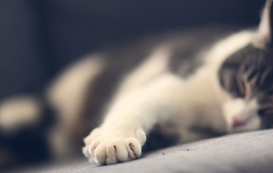- Home
- Cat Sitter Blog
- Cat Health
- Inflammatory Bowel Disease (IBD) - A Cat Parent's Perspective
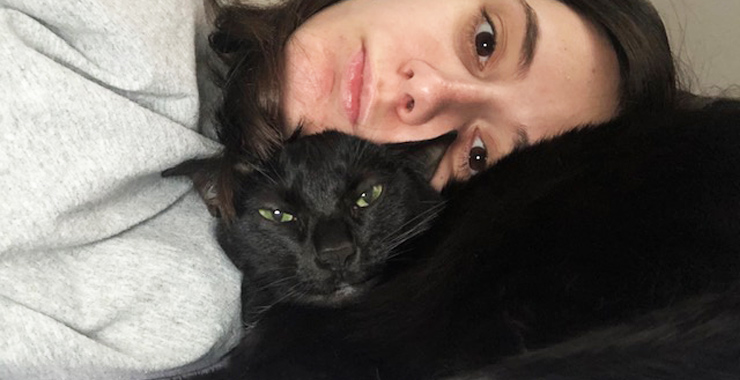

Popular posts
Inflammatory Bowel Disease (IBD) - A Cat Parent's Perspective
When I uprooted my life from Dallas to the Seattle area, I thought the hardest part would be packing up my girls, Devereaux and Betty White, on a nearly four-day road trip. But I was wrong. While it was difficult traveling with them in the car and settling into hotels, the most challenging part of our journey would happen when we finally settled into our new home.
Blanche Elizabeth Devereaux began losing weight. Fast. She was plus-size adjacent and had been on a steady regimen to slowly and healthily lose weight up until our move. However, she lost nearly three pounds in two months. Her appetite hadn’t really changed, and her litter box habits were normal. Yet, I knew something was wrong.
After two trips to a brand-new vet, x-rays, and an emergency vet visit to get an ultrasound, we finally had some answers. She didn’t have cancer (praise be!), and she hadn’t swallowed anything. We did find out there was inflammation in her intestines though. With this information, we were able to get an appointment with Dr. Gonzalez, an internist at the Veterinary Specialty Center of Seattle, who performed an endoscopy after we tried a prescription diet that yielded few results. Finally, we received a diagnosis: Devereaux had Inflammatory Bowel Disease (IBD).
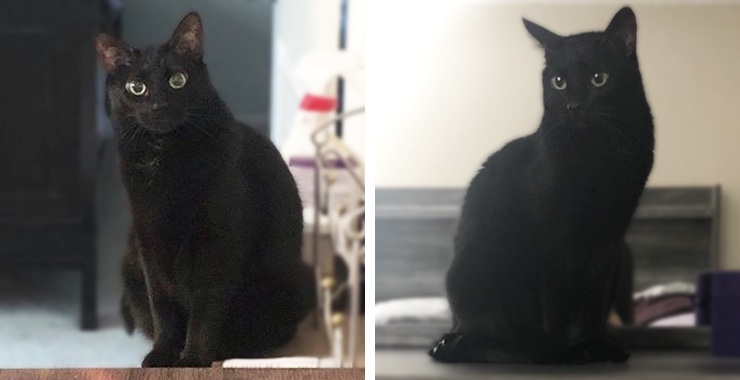
Before diagnosis
After diagnosis
I was sent into a tailspin of Googling and freaking out, but the internet didn’t have a lot of clear answers about IBD in cats. I am grateful for Dr. Gonzalez who talked me off the ledge and explained every nitty, gritty detail and possibility for treatment. Here’s what I found out that I wish the internet had explained more clearly:
- IBD can be genetic, but there’s no test to see if your kitty is predisposed.
- It happens, and it’s not the parent’s fault.
- In order to get an official diagnosis, a cat needs to get x-rays and an ultrasound. An endoscopy may also be needed to confirm the diagnosis.
- Each cat is different, so what works for one won’t necessarily work for another.
- Possible ways to help cats with IBD:
- Food trials - veterinarians will often recommend a prescription diet that is formulated for either gastrointestinal sensitivities or one that is hypoallergenic, such as a hydrolyzed protein formula or one made with a novel protein like venison or rabbit.
- B12 injections
- Probiotics (depending on the results of food trials and B12 injections)
- Finding the right solution will take time, and many vet appointments.
- IBD doesn’t necessarily impact your cat’s life expectancy or lifestyle.
Devereaux is in the middle of her second prescription diet and doing better! I learned how to give her B12 injections, which has really improved her energy and playfulness. I know we still have a long road ahead of us because she will have IBD for the rest of her life, but I am grateful for an amazing vet whose patience and gentleness was a blessing in a time of great distress. If you learn anything from our journey, I hope that it’s to trust your instincts. Don’t beat yourself up, and know that IBD is manageable. With proper treatment, your kitty can still live a long and happy life.
Your purrbaby’s health is important. When you travel, make sure your Meowtel sitter is aware of your kitty’s health history, current medications and diet restrictions, and what is normal when it comes to your cat’s appetite and gastrointestinal habits. Communication is the key to helping your sitter ensure your cat can live their best life while you travel with peace of mind.
DiAngelea and Blanche Elizabeth Devereaux


